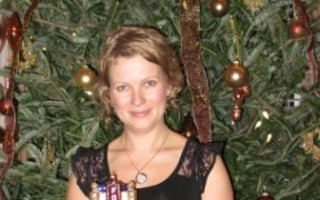
Ariana Afghan Cuisine is the first Afghan restaurant in Atlanta (or perhaps even the entire state of Georgia). Located just off the highway off 285/ Roswell Road, the first glance doesn’t give much of a curb appeal. But once you step inside, it’s an entirely different experience. The inviting space is decorated with large Oriental rugs […]

Last week a delegation from Russia came to Atlanta to discuss social issues and healthcare through the Open World Leadership Program. The six delegates were hosted with families who have opened up their homes by being members of the Georgia Council of International Visitors (GCIV). Mariya Yuryevna Solodunova, a young lady from St Petersburg was […]
Recently, I have given a few presentations on volunteer vacations abroad, shares my stories and inspired others to travel. The question I get from my audiences after each presentation is “What do I do next?” So here is the answer to that and other frequently asked questions you may have about volunteering abroad. How […]
This weekend, I attended the Global Health & Humanitarian Summit at Emory University in Atlanta. It was three days of speakers, networking, exhibits and activities. The organizers want to make it into a movement, similar to the Global Economic Summit and it was a great first event. There were hundreds of people from all over […]
I wrote this for my family and friends a few months ago and decided to share it with you too… I lived in India with my grandmother till the age of 17. She was a professional volunteer social worker for most of her life as her husband did not want her to work for money. […]